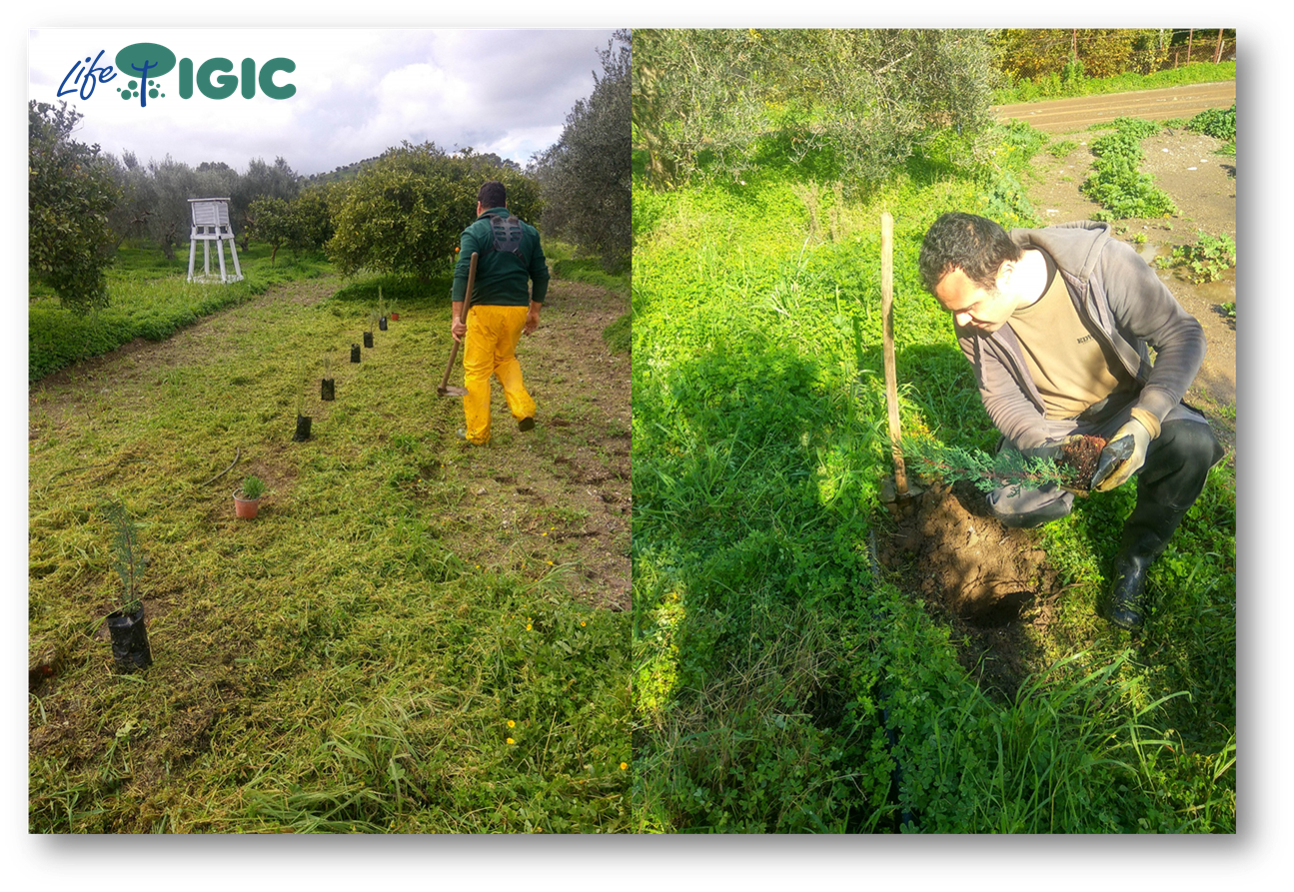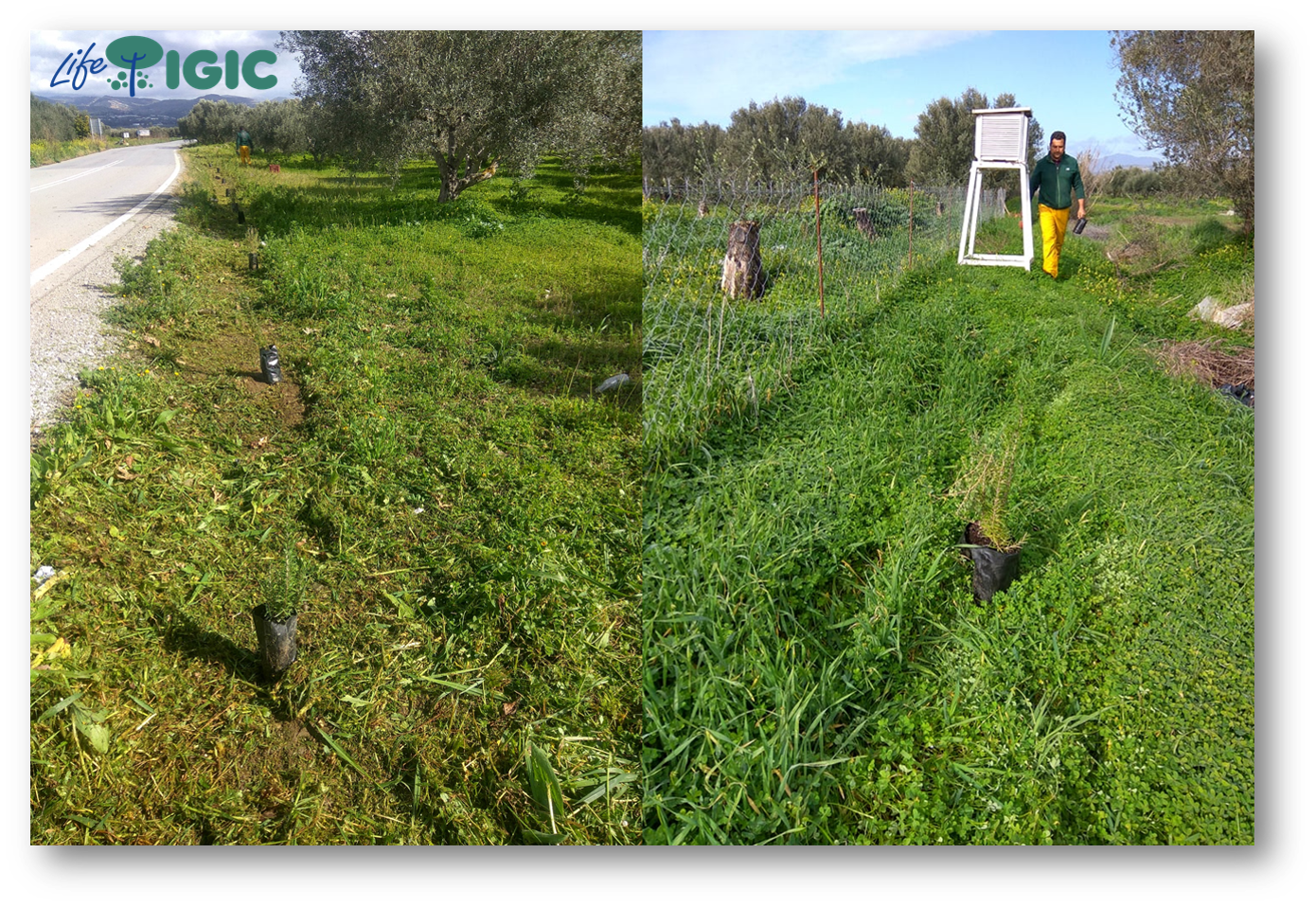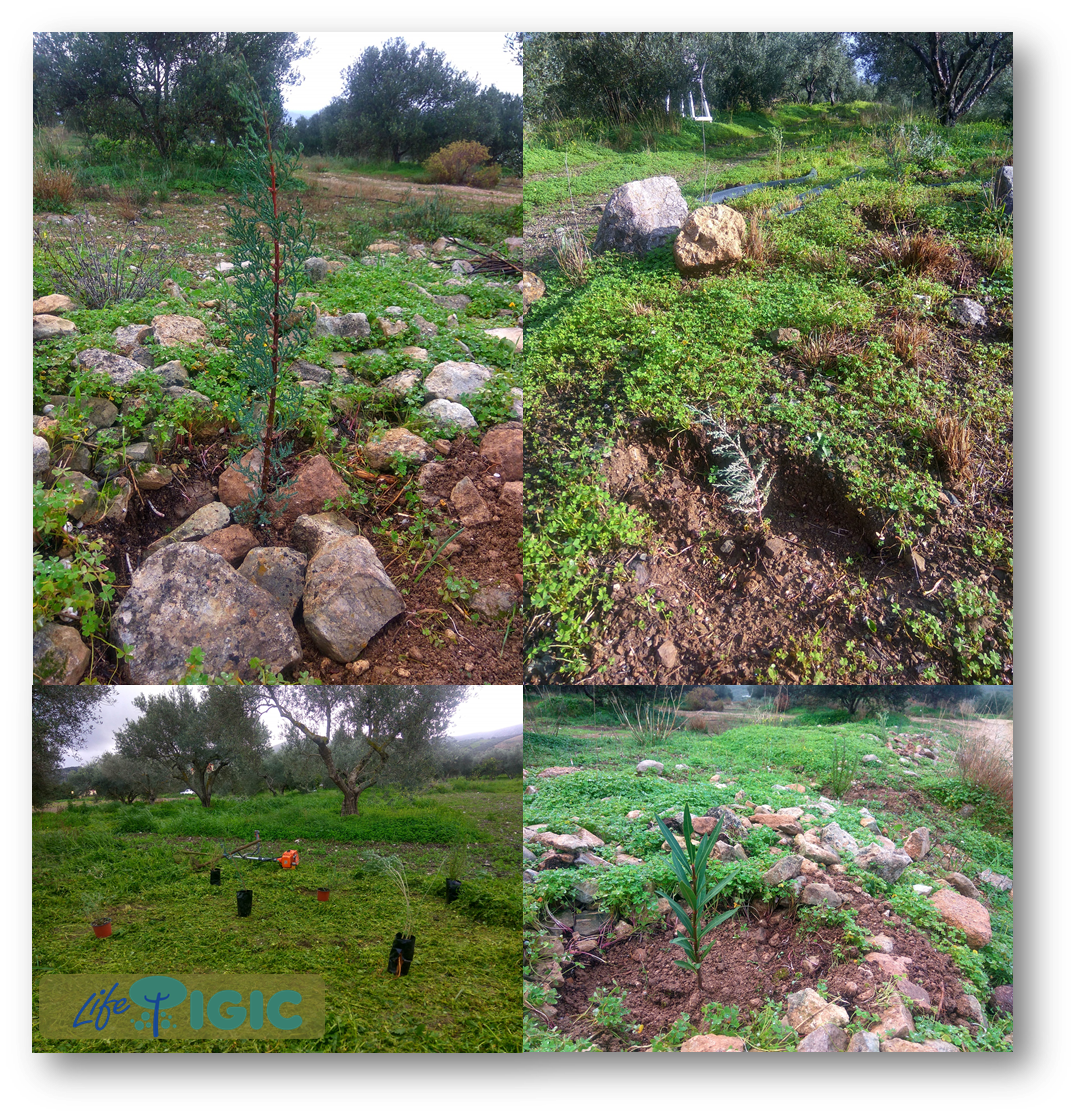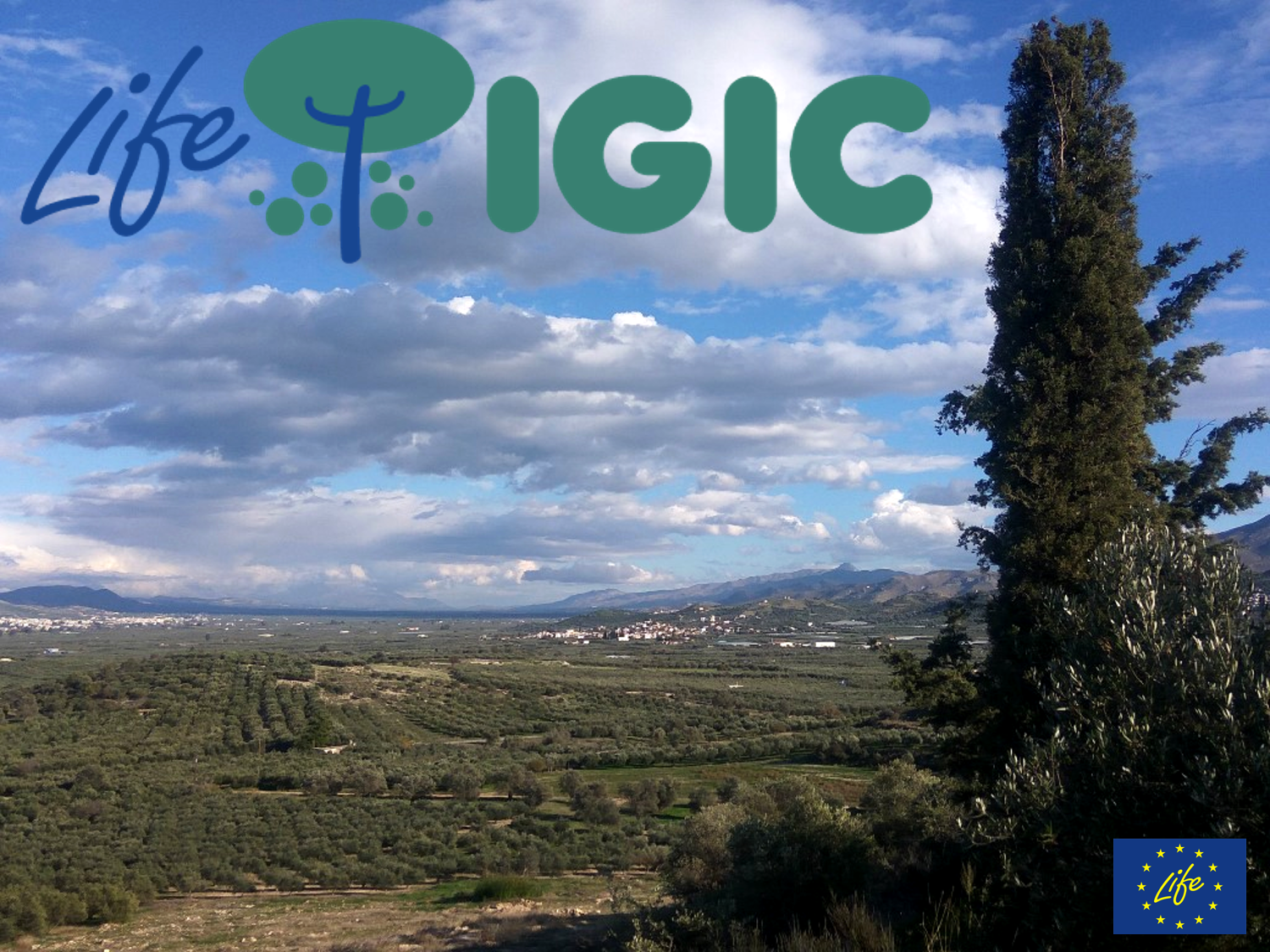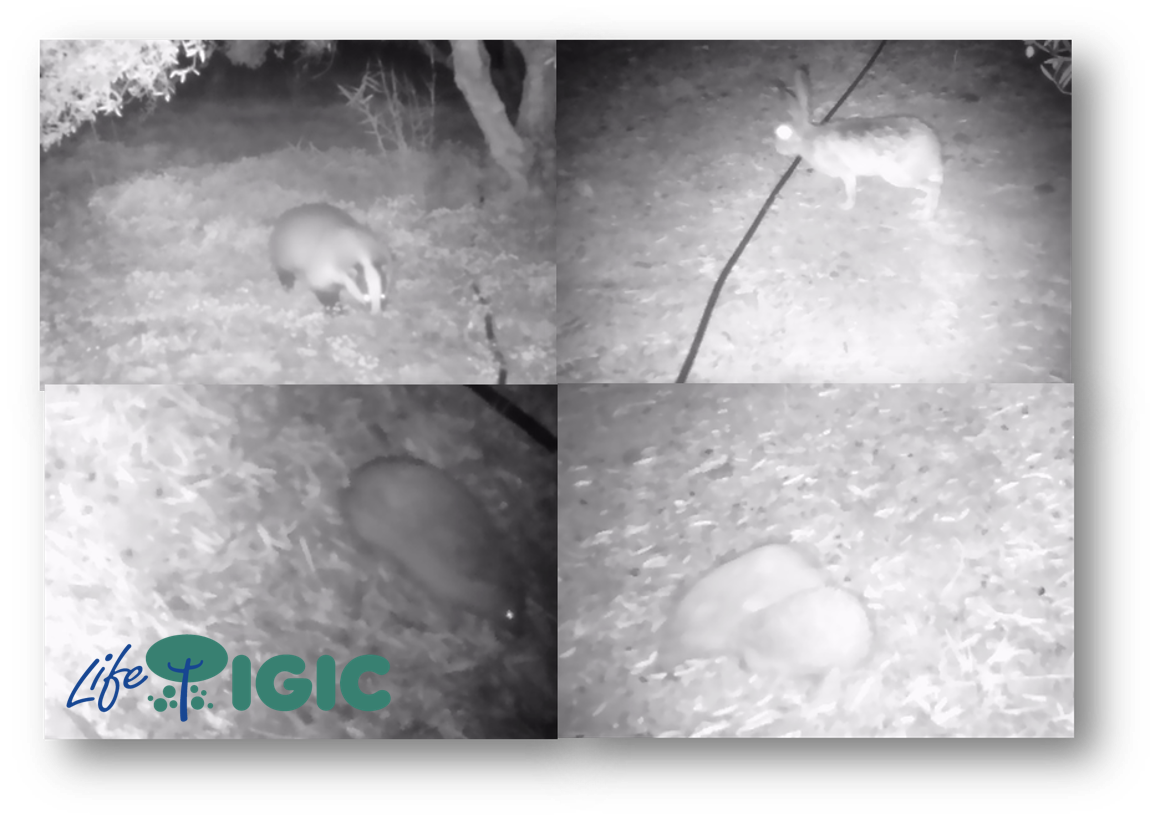October 2020 - LIFE IGIC
Α) Identity of the project
| Title/ N° |
Improvement of Green Infrastructure in agroecosystems: Reconnecting natural areas by countering habitat fragmentation
LIFE IGIC – LIFE16 NAT/GR/000575
|
| Duration |
01 September 2017 - 30 June 2024 |
| Budget |
Total budget: 1.246.704 € EU contribution: 58.94% |
|
Beneficiaries |
Coordinator: Beneficiaries:
|
| Location of activities | Crete (Greece) |
| Website | |
| Contact |
Emmanouil Kampourakis, Project Coordinator |
Description/Aim
LIFE IGIC project aims at the development of Green Infrastructure (GI) and supportive sustainable farming methods in olive orchards in Messara, Crete, an area surrounded by Natura 2000 sites and of great cultural, nature and agricultural value. Main objectives, biodiversity conservation, agroecosystem services enhancement and reconnection of existing nature areas.
The main objective of the project is the development of a GI network which will play a demonstrative role in regional, national and EU level, while conserving biodiversity, enhancing agroecosystem services and providing the basis for reconnecting existing nature areas.
Β) Best Practices
The good practices that were adopted and followed by the participating olive growers in the framework of the project are:
- Development of Green Infrastructure elements in pilot olive orchards of the project area in order to enhance the restoration and enhancement of existing and new microhabitats, the provision of shelter and nesting sites for targeted species and their preys and the increase of carrying capacity of the sites;
- Sustainable soil management (no-tillage, strip-cultivation);
- Cover crop use, with mixtures including leguminous crops;
- Plant protection, including the exclusion or rational use of synthetic plant protection substances;
- Pruning residuals management, by reducing or eliminating the residue burning, used for increasing soil fertility (residue incorporation to soil).
Regarding dissemination of information and good practices for the general public and encouraging behavior change, the main actions concern:
- Project website (www.lifeigic.eu) and social media;
- Digital and printed leaflets;
- Dissemination of the project actions and results in workshops and seminars by transferring knowledge to olive growers and stakeholders (e.g., Region of Crete, agricultural cooperatives, research organizations, agronomists, etc.);
- Inform olive growers about the environmental impact of olive production and about the agricultural management practices that are biodiversity-friendly;
- Participation in events throughout Crete.
It is expected that a comprehensive proposal will be drafted to policy makers at national and European level regarding specific objectives of the National Biodiversity Strategy & Action Plan, promoting the development of PA in unprotected agricultural areas.
Good practices that are expected by the actions and outputs of the LIFE IGIC are the following:
- Reduction of the use of synthetic plant protection substances (i.e., pesticides);
- Use of pruning residues as fertilizer or shelter for various fauna species;
- Plantation of various plant species in olive groves to enhance the biodiversity of agro-ecosystems;
- Upgrading ecosystem services provided by biodiversity, in particular those important for agricultural production (e.g., control of pests for production);
- Enhancement of ecosystem services provided by biodiversity, including important ones for agroecosystems (e.g., pest control).
C) Results
The results of the project so far include i) the website of the project as the main tool for dissemination and consolidation of the objectives and results of the project, ii) The first 4 booklets of the project available in two languages (Greek and English) for the initial promotion and dissemination of the project and its results iii) Various media articles on the framework and objectives in local and national media based on press releases from the project partners, contributing to the publicity of the project to a wider public at local and national level.
The results of the project are mainly addressed to producers/olive growers as well as local and national decision-making centers on agricultural policies and rural development. Those interested can find enough data on the project website: www.lifeigic.eu
Within the framework of the project, it is expected to proceed the implementation of the complete installation of Green Infrastructures in the pilot olive groves of the project (Action C.1) and then the training of the interested parties on this object.



